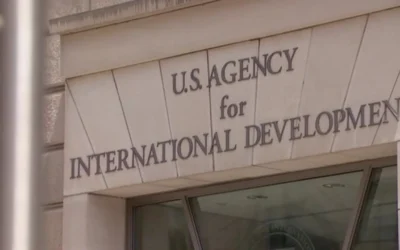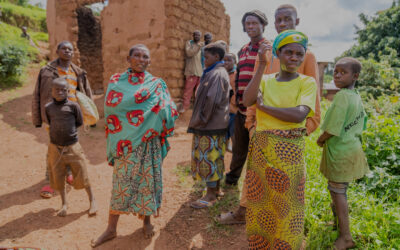Food Insecurity – A Global Challenge
Your holidays are probably filled with a variety of traditions – special items that have been passed down to you from other family members you put out this time of year; yearly performances and outings; crafts with little ones; and gathering with loved ones.
And, of course, food.
For me, holiday food traditions include cinnamon rolls and egg casseroles on Christmas morning, a large family meal on Christmas Eve, homemade macaroni and cheese on Christmas night, my grandma’s almond roca, caramels from my mom, and green spritz tree-shaped cookies with red sprinkles.
This year, as you begin to think about and prepare for the culinary traditions found in your holiday season, you may be thinking about food prices, as they seem to be ever-rising.
But thankfully, here in the United States, our communities have a variety of safety nets for folks having a hard time with food security – food banks and government food benefits are available for community members facing food insecurity.
Not so many places around the world, where multiple causes, such as the effects of the pandemic, climate change, and conflict, deeply impact food security for millions of people.
According to a 2024 UN State of Food Security and Nutrition in the World report, around 733 million people went hungry in 2023. This equals one in 11 people globally. And in 2023, over 2 billion people experienced moderate or extreme food insecurity (lack of adequate access to enough healthy and nutritious food).
And trends aren’t tracking positively – according to a report from the United Nations General Assembly, “The prevalence of moderate or severe food insecurity is higher than it was in 2015, with proportionally more women affected than men in every region of the world.”
While you may have been inconvenienced by the pandemic, or notice a little hotter summer temperatures in your part of the country, or feel enraged by global conflict, chances are you’re not experiencing food insecurity like so many folks around the world because of these global crises. Where you live, you had safety nets during the pandemic, your environment isn’t experiencing the most extreme effects of climate change, and your community is not directly impacted by conflict.
While food prices are inconveniently higher now, if you live in the United States, you have access to food for your family, even if you tap into community resources to be able to afford it.
This holiday season, as you participate in your yearly traditions, consider making a new tradition – partnering with One Day’s Wages to help increase food security for our neighbors around the world.
By partnering with One Day’s Wages, you know that your dollars are going directly to locally-led projects that are effectively addressing food security issues in their communities.
What could be a more beautiful tradition to add to this joyful and meaningful season?
More stories of impact
Turning Challenges into Opportunities: Masoka’s Journey of Empowerment
Masoka’s hands are stained with the rich soil of the land she now calls home. A 37-year-old mother of four, she arrived at Dzaleka Refugee Camp in Malawi after fleeing the conflict in her home country, the Democratic Republic of the Congo. The future felt uncertain,...
What Was USAID, and What Now?
USAID has made news headlines constantly over the last few months. You may find yourself wondering: what is USAID, and is One Day’s Wages affected by its dismantling? As a global development organization, we at ODW care deeply about the people who depend on foreign...
Growing Love, One Drop at a Time: How One Woman Turned Her Birthday into a Gift of Clean Water
When Sara, a graphic designer and mother from Oregon, started thinking about how to celebrate her birthday, she decided to do something different—something meaningful. With a belief that “we are all connected… with the power to affect change by how we live our own...
Bridging the Gap: An Update on Our Response to the Funding Freeze
In Matoh, Cameroon, a mother prepares to give birth. Life in a conflict zone means getting to a safe facility with trained health workers is nearly impossible. Fortunately, a new mobile clinic begins offering prenatal care and transportation to a birthing clinic,...
Why We Invest in Women
There’s an old Ghanaian proverb: “If you educate a man, you educate an individual. But if you educate a woman, you educate a family.” On this International Women’s Day, we celebrate the power of women—how their resilience, leadership, and determination transform not...
The Case for Social Inclusion
Today is the World Day of Social Justice! Never heard of it? Never fear, we’re here to fill you in. In 2009, the United Nations General Assembly launched the World Day of Social Justice to recognize our on-going need for inclusive economic development and decent work...
LEARN
Leadership
Transparency
Read the Latest
Contact Us
COLLABORATE
Faith Groups
Schools
Businesses
Get Involved
One Day’s Wages exists to alleviate extreme poverty by investing in, amplifying, and coming alongside locally led organizations in underserved communities.
©2025 One Day's Wages is a registered 501(c)(3) organization | Tax ID #26-2566653 | Privacy policy | Terms of use
P.O. BOX 17575 Seattle, WA 98127 | Contact us








